| » BROJ 78 |
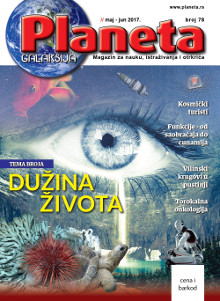 |
Godina XIV
Maj. 2017- Jun. 2017.
|
|
| » Glavni naslovi |
SUMMARY
Summary
THE FEATURE OF THIS ISSUE
Aging
|
|
 |
Whatever one does or attempts to do,
there is only one thing that is certain:
that one day the human body will die.
That is why the ambition to live forever
has been a permanent feature throughout
civilization, and that is why on countless
times and across the world we are trying to
understand the secrets of longevity.
Some living species take hundreds of
years before dying, like some cnidarian live
for unbelievable 11,000 years! Can some of
this be applicable to men? How to live not
only for the average eighty years, but much
longer? Many scientific centers around the
world have worked for years trying to understand
the secrets of aging and the potential
for increasing the human life. How
far have they come? Can we ever hope for
longer lives?
|
COSMONAUTICS
The forerunner to the Moon |
|
 |
Elon Musk, the CEO and major shareholder
of company „Space X“, has again stirred
the attention of the public worldwide by
announcing new space undertakings. After
this autumn’s presentation of his vision of
colonizing the Mars, designed for the year
2026, on 27 February this year he announced
his plans of sending cosmic tourists on a
journey to the Moon.
Preparations are underway for two wealthy
citizens, enthusiasts of space travel, who
have already made the significant payment to
company „SpaceX“ to take the circular flight
around the celestial body closest to the Earth,
to fly by it without entering its orbit.
The journey is to take place at the end of
December 2018 in the „crew dragon“ capsule,
which is to be launched by the „falcon heavy“,
and should reach a record in distance from the
Earth of 480,000 – 640,000 km, exceeding
the greatest distance from the Earth to the
moon and the greatest distances reached from
the Earth which was done by the „Apollo 13“
with 401,000 km. The names of the astronauts
tourists have not been announced yet.
|
SPACE RESEARCH
Life from one planet to another |
|
 |
Within the Trappist-1 system other worlds
are so close to each other that it seems
you could throw a stone over there. Can life
likewise “jump” from one to another?
The recently discovered plants of the
Trappist-1system could be a playground for
microbes which travel clinging to rocks. Three
of seven small planets orbiting this foggy star
are constant inside its inhabitable zone, areas
with temperatures in which water stays in the
liquid state, which is considered a pre-requisite
for life. They continually maintain their distance
from each other, which is just a few times
greater than the distance between the Earth
and the Moon.
In such small distances, ones a meteorite
hits the surface of these planets, the resulting
chunks can also fly to other two nearby bodies.
If a bacteria or another form of life flies on such
a fragment it can travel in this process known as
panspermia. Some scientists believe that life on
the Earth could have originated in this manner,
as a result of microbes flying in from Mars.
|
HYPOTHESES
In the saline waters of Mars |
|
 |
If microbes would group and stick together
this could assist them in surviving the
overly saline waters on Mars. These slimy
conglomerations, colonies of cells submerged
in the protective slimy membrane, when
exposed to the oversaturated water existing
on Mars, live longer than individual cells–even
if previously dried.
Such slimy conglomerations exist everywhere
on the Earth, from tooth settlement in our
mouths to settlements in ponds and systems
used to treat big oil spills. In this case, the slimy
conglomerations can protect their inhabitants
from antibiotics, radiation, temperature changes
and other environmental extreme conditions
which otherwise would most certainly kill them.
Their behavior on the Earth has been well
studies; however, we are only just beginning to
study how they would act in other circumstances
in space–which is essential if we intend to
avoid pollution of other worlds.
An experiment is currently underway
which demonstrates that sheltering microbes
in a space ship could help them survive.
|
MEDICINE
Thoracic oncology |
|
 |
As is the case with many other malignant
diseases, timely diagnosis of lung cancer
can mean making lung cancer a chronic disease, and in some case it can be treated
with new, targeting medicines and immune
therapy. Professor NevenaSečen, M.D.,
pulmologist oncologist, an associate of the
Bel MedicHospital, talks about the modern
treatment options, and emphasizes that the
key to this disease is prevention and early
diagnosis, giving up smoking and generally
eradicating this harmful habit, along with
regular medical check-ups, especially for high
risk groups.
Lung cancer, one of the most frequent malignant
tumors, in 90 percent of cases happens
in long-term smokers. This sign of warning is
also the greatest risk factor for the onset of this
disease and it also confirms the thesis of the
World Health Organization (WHO) that many
oncologic diseases, including this most deadly
one–is preventable. Professor NevenaSečen,
pneumophysiologist, pulmologist, and oncologist,
also underlines the importance of preventive
action, giving up smoking, for individuals,
and general campaigns targeting the public at
large.
|
MEDICINE
A child with Asthma |
|
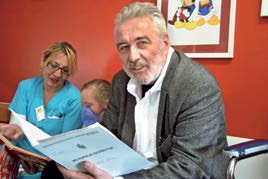 |
Timely detection and treatment of asthma
in children are important not only in
order to get rid of the disease in the early
age but for respiratory health for the rest
of life. The topic of asthma diagnosing and
control in children is presented by the best
expert in this pathology, a pulmologist and
allegrologistBranimirNestorović, M.D., Ph.D.,
an associate of the Bel MedicHospital.
Speaking of asthma, Professor Nestorović-
states that it is increasingly understood not as a
disease but more as a syndrome with a number
of phenotypes determined by the genetics and
by external factors affecting it.
Also, some recent
studies indicate that over the past two decades
there have been weaknesses in diagnosing
asthma across the world, and a significant
number of patients was treated by anti-asthma
medicines although they did not in fact have
asthma, while in others it was diagnosed late
and neglected or not treated.
|
MEDICINE
Lasting treatment of hernia |
|
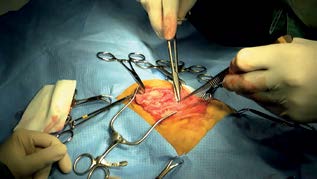 |
Tension-free surgical hernia repair
techniques have led to significant
advancement in hernia surgery. This
treatment method uses implantation
of a piece of mesh made of advanced
biomaterials and it is discussed by professor
SvetozarSečen, MD, head of the colorectal
surgery at the Clinic for Abdominal,
Endocrine and Transplantation Surgery of the
Clinical Centre of Vojvodina, also a consultant
of the Bel Medic Hospital.
Inguinal and abdominal hernias are, after
bile calculosis, is the most frequent pathology
in abdominal surgery. Their only efficient treatment
by surgery used to imply the conventional
stitching of the surgical cut, often accompanied
by repeated hernia relapse. Now, surgical
hernia treatment has been improved by
implanting prosthetic mesh made of new biomaterials
which is most often a lasting solution
to this problem. The key idea of this treatment
is to create and new natural and strengthened
abdominal wall.
|
ENERGY
Solarthermal collectors |
|
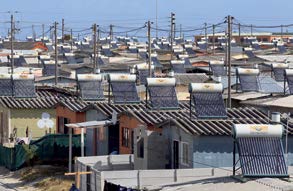 |
For mankind to prevent negative climate
change and curb the emissions of CO2 into the
atmosphere, it is necessary to step up the introduction
of renewable energy sources, including
hydro, wind, and solar energy. The deadline
for this change to happen is 2050/2060.
The share of RES use at present is 10-20%.
To produce 1 kWh it is necessary to combust
about 1.2 kg of lignite of caloric value around
2,080 kcal/kg. during combustion, coal releases
about 0.8 kg carbon dioxide.
Globally, at the end of 2014, the total surface
of installed solar collectors was about 590
millionm2 of surface. China is the leader in
this respect–with installed capacity of 289 GW,
far ahead of other countries. Europe has installed
about 47.5 GWth. The rest of the world
has about 46.2.
European countries have a total of 68 million
m2 of solar collector surface. Countries leading
the way in this respect include Austria,
Cyprus, Israel, and Greece.
|
ARCHAEOLOGY
Carbonated traces of ancient times |
|
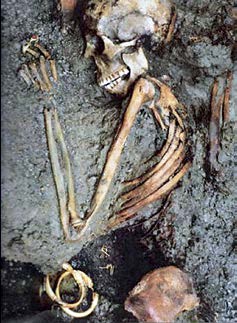 |
In Campagnia, a region in Southern Italy,
there is the town of Ercolano in whose
territory are the remains of one of the best
preserved ancient settlements, Herculaneum.
The name of the settlement is Greek, but
before the Greeks, there was in this location a
settlement of Samnites, Italic people famous
for wars waged with the Romans.
Samnites have marked the centuries of
history of Herculaneum or Heraklion as the
Greeks called it. The managed to recapture the
town in the 4th century BC, while the Romans
captured the settlement three centuries later,
after a major military campaign. The history
of this ancient town ended with the eruption
of the famous volcano Vesuvius in the year 79
AD, which preserved the town for future generations
|
Kompletni tekstove sa slikama i prilozima potražite u magazinu
"PLANETA" - štampano izdanje ili u ON LINE prodaji Elektronskog izdanja
"Novinarnica"
|
|
|
» Prijatelji Planete |
| » UZ 100 BR. „PLANETE” |
|

|
| » 20 GODINA PLANETE |
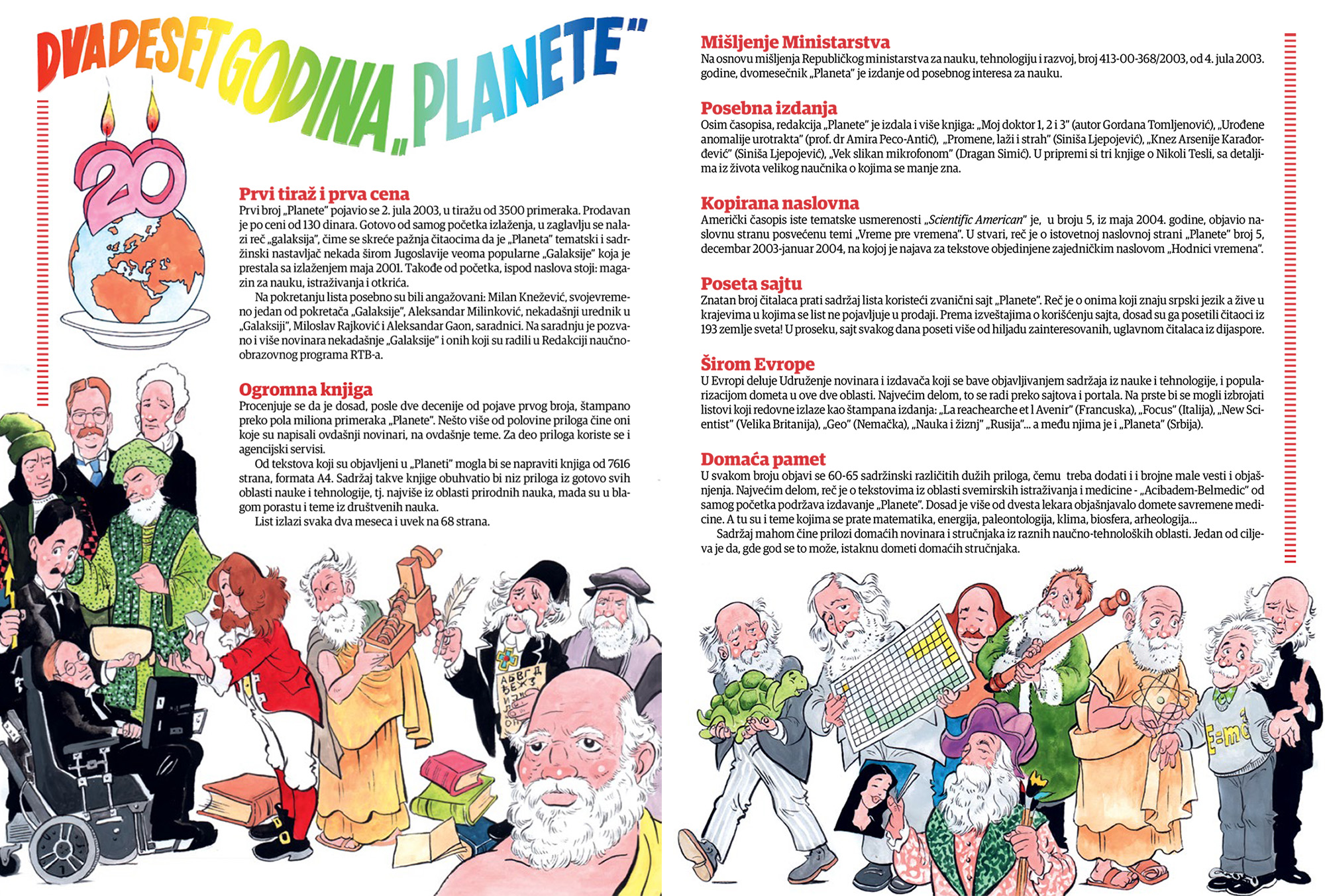



6 digitalnih izdanja:
4,58 EUR/540,00 RSD
Uštedite čitajući digitalna izdanja 50%
Samo ovo izdanje:
1,22 EUR/144,00 RSD
Uštedite čitajući digitalno izdanje 20%
www.novinarnica.net
Čitajte na kompjuteru, tabletu ili mobilnom telefonu

|
| » PRELISTAJTE |
NOVINARNICA predlaže
Prelistajte besplatno
primerke
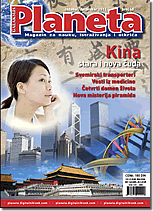
Planeta Br 48
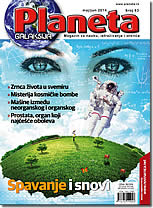
Planeta Br 63
|
| » BROJ 120 |
 |
Godina XXI
Novembar - Decembar 2024.
|
|
|

